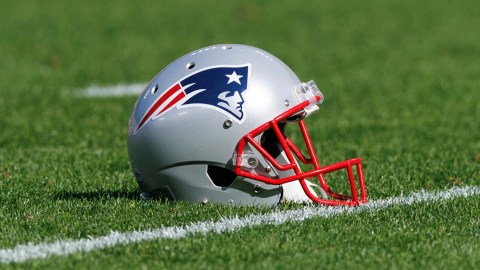The Patriots lost in heartbreaking fashion to the Seattle Seahawks in overtime in their home opener at Gillette Stadium on Sunday. New England was hit with a little bit of a reality check after pulling off the upset win over the Cincinnati Bengals on the road in Week 1.
The defense played well in the loss, but the offense could not get the ball downfield and into the hands of New England's playmakers, such as DeMario Douglas, Ja'Lynn Polk and K.J. Osborn, which resulted in some frustration from the receiving corps.
"All of those guys in that locker room want to play football," Patriots head coach Jerod Mayo told reporters during a press conference on Monday, per team-provided transcript. "All of those guys in the locker room want to help this team win, and if they're not frustrated, then that's an even bigger problem. Frustrations -- every single week, someone's going to be frustrated. Every single week, you're going to have to put more on one side of the ball or more on one individual than the other just based on matchups alone. If you're not frustrated, that, to me, just says a lot."
More patriots
The Patriots had the opportunity to win the game in overtime when they won the coin toss and elected to receive the ball to begin the sudden-death period. After a touchback on the kickoff, New England started at its own 30-yard-line. After two short gains, the Patriots opted to give Rhamondre Stevenson the ball on third and one, but he was stopped at the line of scrimmage, and Caeden Wallace was flagged for an illegal formation on the play. Instead of going for it on fourth down, the Patriots punted, and the Seahawks won the game on Jason Myers' third field goal. After the loss, Mayo said he did what he "thought was best."
Story continues below advertisement
Mayo doubled down on his decision after having the opportunity to review the game film.
"I don't want to get into 'If this would have happened,' or looking back like that and dealing with hypotheticals. I made a decision, and it's a decision that I have to live with," he said. "I'm willing to take the consequences either way. All of those key decisions, whether it's to take the ball going into overtime or not taking the ball, those are all things that can change on a game-by-game basis and also the flow of the game. So, maybe the defense is playing great, or the offense is playing great, and all those things come into play. I wouldn't change anything, but at the same time, to your point, you have to go back and evaluate just that whole operation."
Featured image via David Butler II/Imagn Images
















